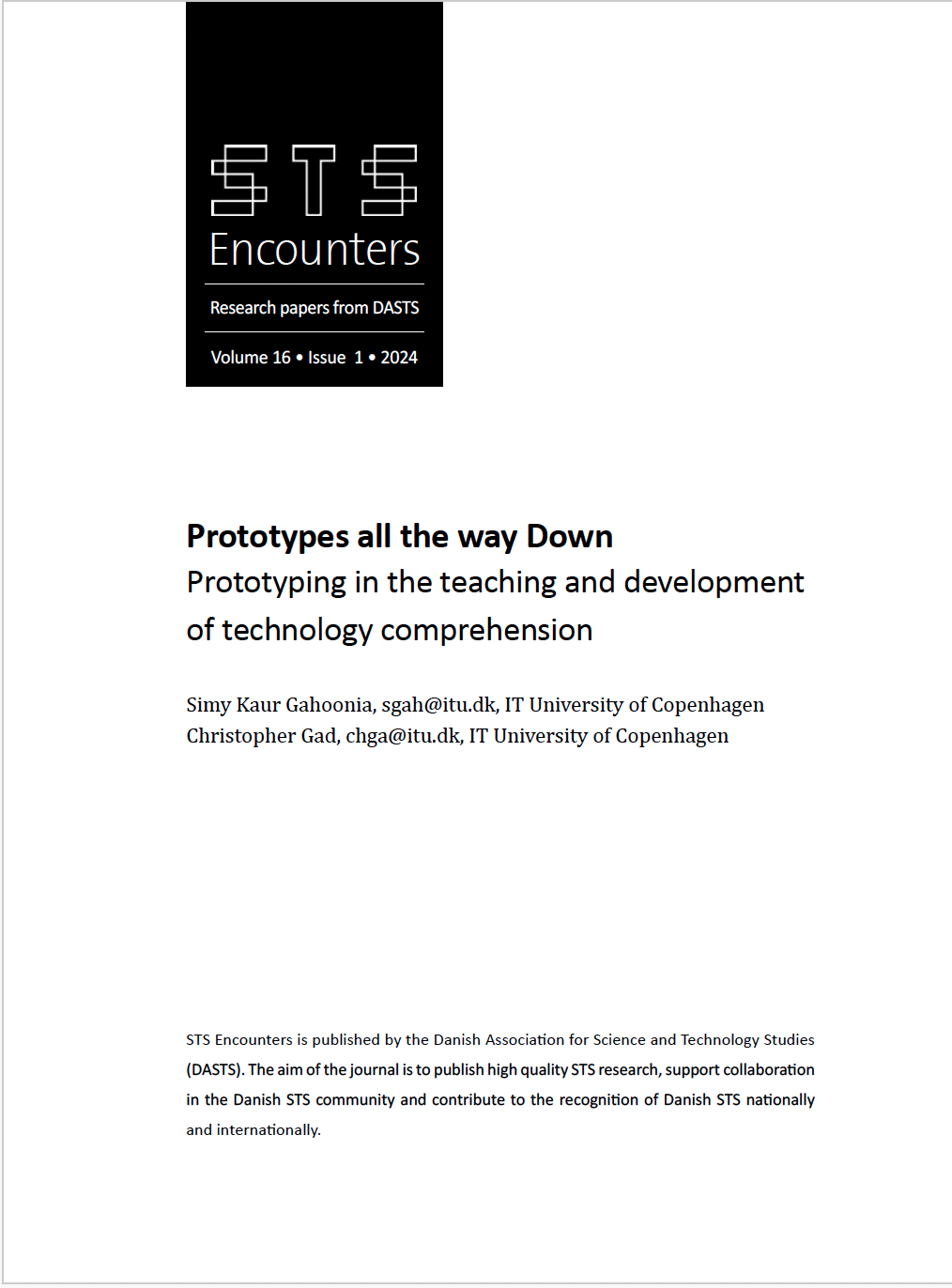Prototypes all the way Down
Prototyping in the teaching and development of technology comprehension
DOI:
https://doi.org/10.7146/stse.v16i1.145136Keywords:
technology comprehension, prototyping, subject matter development, experimentation, school educationAbstract
This paper examines enactments of prototyping in a recent experimental effort to introduce ‘Technology Comprehension’ (TC) as a mandatory school subject in the Danish Public School. The overall concern of the programme was to educate young people to become not only users, but makers and analysts of the digital technological society. We adopt a social-theoretical view of prototyping that suggests it has moved well beyond design, and has become part of a broader cultural repertoire. We explore the capacity of prototyping as a site of social knowledge-production, illuminating prototypes as instruments of experimentation, epistemic negotiation, and civic participation. We analyse two prototypes: 1) an artefact that was the outcome of a pupil’s work in a TC lesson; 2) an experimental lesson plan called ‘App Design’ put to use by a teacher in a series of 5th grade TC lessons. Attending to how prototyping is performed in the pupils’, teachers’, and subject matter experts’ making, demoing, testing, and iterating on ‘first type’ tangible and material artefacts–prototypes. Prototyping in the trial programme can be understood as the rehearsal of chaotic conditions, in the teacher-pupil relation, and in the pupil-world relation. Prototyping can absorb the seeming impossibility of bridging ‘theoretical’ and ‘practical’ knowledges, and make new social and material agencies arise. The trial of TC seems in this light as much as an experiment in rendering social relations and knowledge-making, open-ended and experimental as it is an experiment in cultivating that exact attitude towards technology, but also towards societal affairs and knowledge-production.

Downloads
Published
How to Cite
Issue
Section
License
Copyright (c) 2024 Simy Kaur Gahoonia, Christopher Gad

This work is licensed under a Creative Commons Attribution-NonCommercial-ShareAlike 4.0 International License.
Starting with volume 15, articles published in STS Encounters are licensed under Attribution-NonCommercial-ShareAlike 4.0 International (CC BY-NC-SA 4.0). The editorial board may accept other Creative Commons licenses for individual articles, if required by funding bodies e.g. the European Research Council. Previous articles are not licensed under Creative Commons. In these volumes, all rights are reserved to the authors of the articles respectively.




